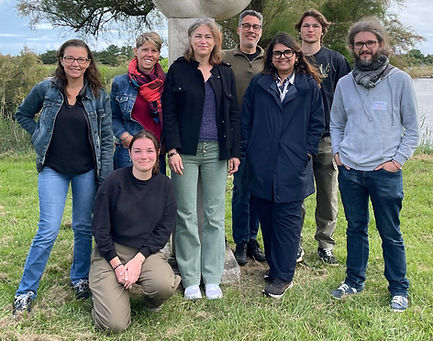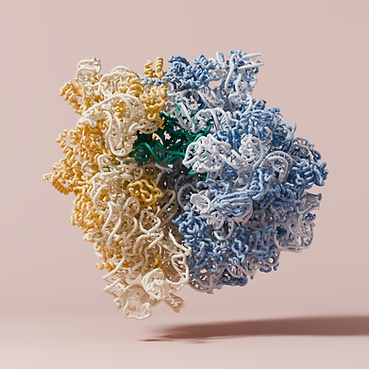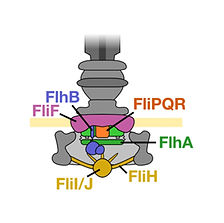Who we are
We are an interdisciplinary group doing research at the crossroads of structural biology, biochemistry, molecular biology and microbiology. Our diverse expertise allows us to tackle complex biological questions from complementary angles. We also like to develop new tools to study biomolecular processes at high-throughput or to engineer biomolecules for therapeutic or biomedical applications.
Our group is part of the ARNA Laboratory, a joint Inserm (U1212) – CNRS (UMR5320) research unit hosted by the University of Bordeaux and focused on nucleic acid biology and chemistry.
We are located in the new Bordeaux Biologie Santé (BBS) building, near the historical center of the southwestern French city of Bordeaux.

The lab in 2025 | From left to right: Fanny B., Lélaud E., Mélanie G., Anne B., Axel I., Arunima B., Dorian G. and Thibaud R.
Latest news...
What we study
Bacterial protein synthesis
Ribosomes are the large macromolecular complexes responsible for accurately translating the genetic information contained in messenger RNA into protein.
We study how bacterial ribosomes make proteins, how specialized arrest peptides turn the ribosomes that synthesize them into small molecule sensors to enable bacterial adaptation, and how ribosome-targeting antibiotics and antimicrobial peptides block these complex molecular machines.
Check out our favorite molecules below!
E. coli 70S ribosome
(PDB 6TC3)

Monitor the cellular environment
These short, conserved stretches of amino acids have a unique ability: to stall translation by blocking the ribosome that produces them... from within.
Some arrest peptides function as small molecule sensors and can reprogram ribosomes to detect drugs, amino acids or other metabolites!
Neutralize or kill harmful bacteria
These structurally and chemically diverse small molecules are the mainstay of modern medicine, but their efficacy is under threat from multidrug-resistant pathogens!
Join us in understanding how they function and how resistance mechanisms against them might be thwarted!
Protect against bacterial invaders
Ubiquitous in nature, these important components of innate immunity can sometimes target the ribosomes of harmful bacteria to stop infections from spreading.
And since they are also made by the ribosome, we can use it as a production and selection platform to develop next-generation antimicrobials!

Bacterial protein secretion
Besides the ribosome, bacteria harbor a variety of complex nanomachines, such as specialized secretion systems.
We have recently branched into the study of Type III Secretion Systems and how they can be repurposed for the rapid, high-yield, and low-cost production of peptides and proteins for diagnostic or biomedical applications.
How we do it
To understand the molecular mechanisms at play, we rely on a combination of molecular and structural biology (cryo-EM), biochemistry, microbial genetics and bioinformatics.
In addition, we make extensive use of next-generation sequencing and droplet microfluidics to develop new methods for
high-throughput functional characterization
and screening of peptide-encoding libraries.
A major focus of our lab in the coming years will be to leverage these tools to develop new peptide antibiotics to tackle drug-resistant pathogens, small molecule sensors for synthetic biology, and engineered bacteria for biomedical applications.
Where we work
Equipe Innis – Laboratoire ARNA
Bâtiment BBS, Université de Bordeaux
Campus Carreire
2, Rue Dr Hoffmann Martinot
33000 Bordeaux, FRANCE
We are grateful to the funding agencies who sponsor our research















